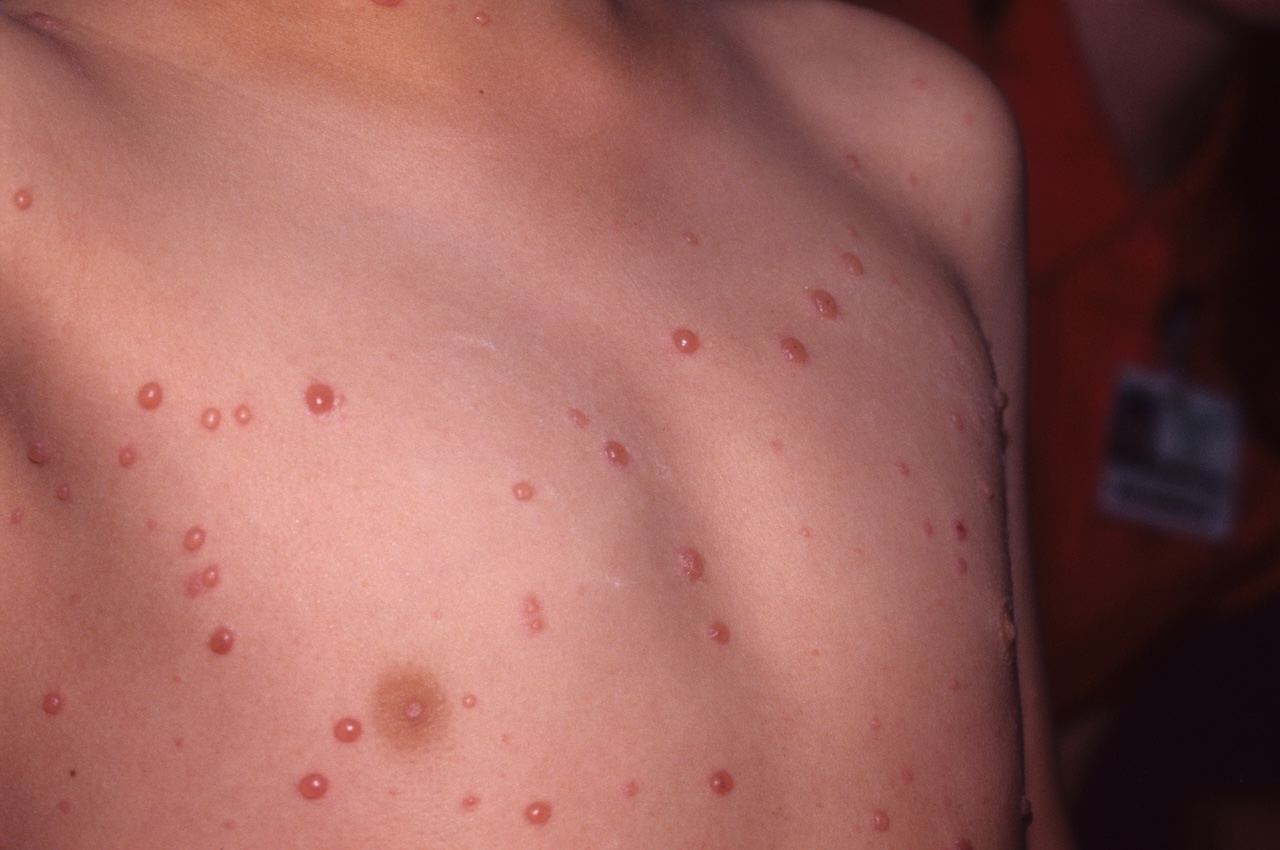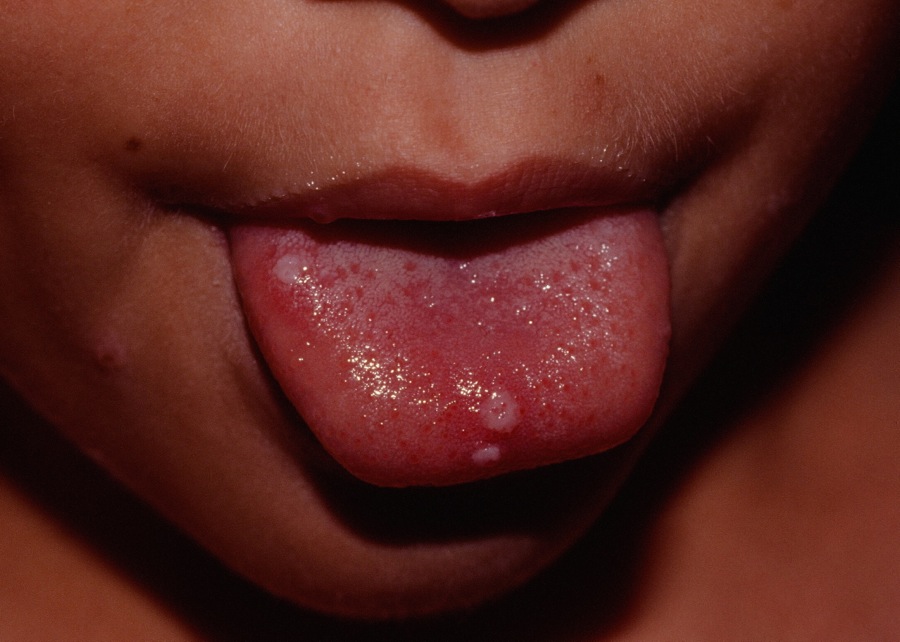
An 8-year-old boy presents with diffuse vesicles. Do PCR of unroofed vesicle, then oral antiviral.

An 8-year-old boy presents with diffuse vesicles. Do PCR of unroofed vesicle, then oral antiviral.
Chickenpox is an acute disseminated vesicular eruption caused by the varicella-zoster virus.
The patient develops tens to hundreds of vesicles that appear as dew drops on a rose petal. The patient commonly experiences malaise, fever, and a headache. The lesions may heal leaving depressed scars. Potential complications include bacterial superinfection (e.g., cellulitis, bullous impetigo or pneumonia).
The quickest way to confirme the diagnosis is to do PCR of an unroofed vesicle.
The following is copied from the CDC yellow book 2024.
"Treatment with antiviral medications is not recommended routinely for otherwise healthy children with varicella. Consider oral acyclovir treatment for people at increased risk for moderate to severe disease (e.g., people >12 years old); people with chronic cutaneous or pulmonary disorders; people who are receiving long-term salicylate therapy; people who are receiving short, intermittent, or aerosolized courses of corticosteroids; and possibly secondary cases among household contacts. Intravenous acyclovir is recommended for immunocompromised people, including patients being treated with high-dose corticosteroids for ≥2 weeks and people with virally mediated complications (e.g., pneumonia). Therapy initiated within 24 hours of illness onset maximizes efficacy. Do not use aspirin or aspirin-containing products to relieve fever from varicella; also avoid ibuprofen, if possible."

Chickenpox can affect the mouth, causing small, painful sores or blisters on the tongue, buccal mucosa, gingiva, palate, and oropharynx which can make eating and drinking difficult.
Who is Dr. White? | Privacy Policy | FAQs | Use of Images | Contact Dr. White